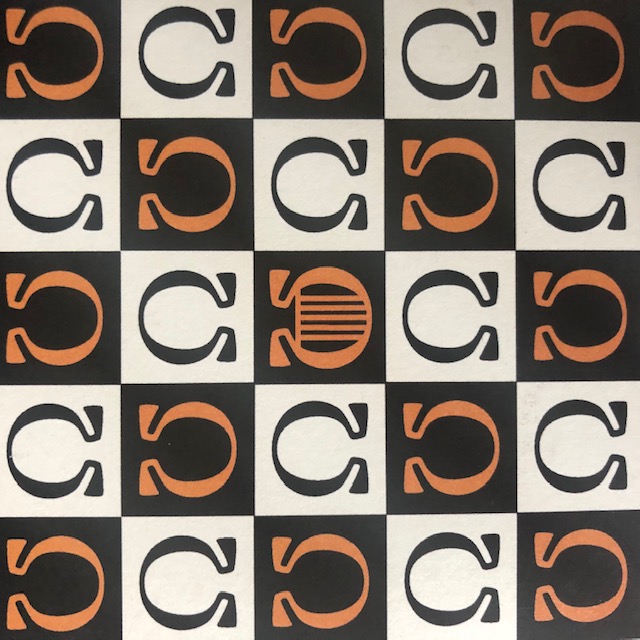These pages provide information about recent developments at or relevant to the ILLC. Please let us know if you have material that you would like to be added to the news pages, by using the online submission form. For minor updates to existing entries you can also email the news administrators directly. English submissions strongly preferred.
The calender view is not available on the mobile version of the website. You can view this information as a list.
You can also view this information as a list or iCalendar-feed, or import the embedded hCalendar metadata into your calendar-app.
| << February 2023 | ||||||
|---|---|---|---|---|---|---|
| Sunday | Monday | Tuesday | Wednesday | Thursday | Friday | Saturday |
|
1
|
2
|
3
|
4
|
|||
|
5
|
6
|
7
|
8
|
9
|
10
|
11
|
|
12
|
13
|
14
|
15
|
16
|
17
|
18
|
|
19
|
20
|
21
|
22
|
23
|
24
|
25
|
|
26
|
27
|
28
|
||||

2 February 2023, Logic and Interactive Rationality (LIRa), Jialiang Yan

4 February 2023, STiHAC Joint Meeting, Philipp Dreibrodt

7 February 2023, EXPRESS-Philmath Seminar, Sarah Moss
There are two prominent accounts of counterfactuals in the literature---variably strict conditional accounts first developed by Stalnaker and Lewis, and strict conditional accounts defended by von Fintel, Hájek, and others. Unfortunately, both accounts face serious challenges. In the first half of this paper, I argue that existing strict conditional accounts fail to accommodate our probabilistic judgments about counterfactuals. The same goes for several other semantic theories of counterfactuals.
Having presented these challenges, I introduce and defend my own positive account of counterfactuals. The account incorporates a key insight of variably strict accounts--namely, that the antecedent of a counterfactual often influences what worlds are relevant to its truth conditions at a context. But unlike variably strict accounts, my view preserves a strict conditional semantics according to which Antecedent Strengthening is valid, thereby capturing the data that have motivated other strict conditional theorists. By adopting the right account of the pragmatics of counterfactuals, we can endorse a strict conditional semantics and still straightforwardly capture the full range of our intuitive judgments, including probabilistic judgments about counterfactuals.

8 February 2023, LLAMA seminar, Lingyuan Ye

10 February 2023, Meaning, Logic, and Cognition (MLC) Seminar, Takanobu Nakamura

14 February 2023, Site Visit by Faculty Boards
On the 14th of February the boards of the faculties of FNWI and FGw will visit the ILLC.

16 February 2023, The Utrecht Logic in Progress Series (TULIPS), Giorgio Lenta
This is a hybrid talk, please contact the organizer if you are interested in joining the online meeting.

16 February 2023, Logic and Interactive Rationality (LIRa), Jos Baeten

17 February 2023, Meaning, Logic, and Cognition (MLC) Seminar, Tamar Johnson

ILLC Current Affairs Meeting cancelled
On Tuesday the deans of the Faculties of Science and Humanities will visit the ILLC and a programme was sent around earlier this week. Because of this event we decided to not also organise a Current Affairs Meeting that week.

20 February 2023, NihiL Seminar, Aleksi Anttila
Abstract: Bilateral State-based Modal Logic (BSML) is a modal logic employing team/state-based semantics which can be used to model free choice inference and other natural language phenomena. We introduce a natural deduction system for BSML as well as for two extensions: BSML with the inquisitive disjunction and BSML with a novel emptiness operator. We also study the expressive power of these logics—we show that the two extensions are expressively complete.

22 February 2023, LLAMA seminar, Fan Yang

23 February 2023, Logic and Interactive Rationality (LIRa), Søren Knudstorp

24 February 2023, PEPTalks, Sadjad Soltanzadeh

24 February 2023, Formalisation, Optimisation, Algorithms, Mechanisms (FOAM), Gregor Behnke
Abstract:
Planning models are usually defined in lifted, i.e., first order formalisms, while most solvers need (variable-free) grounded representations. Though techniques for grounding prune unnecessary parts of the model, grounding might – nevertheless – be prohibitively expensive in terms of runtime. To overcome this issue, there has been renewed interest in solving planning problems based on the lifted representation in the last years.
While these approaches are based on (heuristic) search, we present an encoding of lifted classical planning in propositional logic and use SAT solvers to solve it. Evaluating this approach shows that it is competitive with the heuristic search-based approaches in satisficing planning and even outperforms them if we are looking for (length-)optimal solutions.

24 February 2023, DIP Colloquium, Michael Wagner

27 February 2023, Nordic Online Logic Seminar, Sven Ove Hansson
The Nordic Online Logic Seminar (NOL Seminar) is organised monthly over Zoom, with expository talks on topics of interest for the broader logic community. The seminar is open for professional or aspiring logicians and logic aficionados worldwide.
This is the announcement for the next talk. Those who wish to receive the Zoom ID and password for it, as well as further announcements, can subscribe here: https://listserv.gu.se/sympa/subscribe/nordiclogic.